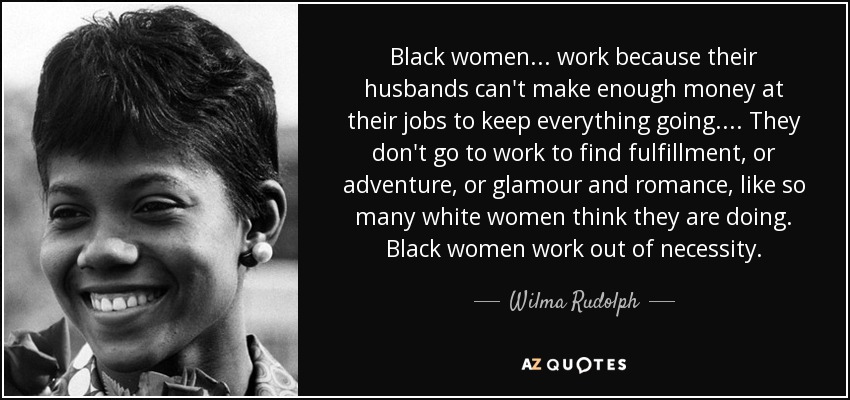 | ||
| Jay-Z and Beyoncé: Empowering African American Couples and Communities |
In the article by Paul Offner (2002). What’s love got to do with it?: Disparity between black men and women,
Paul presents several explanations for why African American women are advancing
so far beyond African American men. Paul mentions Andrew Hacker’s theory that
when businesses look to meet their “African American quota” they tend to hire African
American females because they are “less threating.” This theory is interesting to explore and is
tied deeply in with not only African American oppression, but also oppression
of women. Looking at the right to vote, African American men were allowed to
vote before women of all color, however, allot of African American women in the
south did not received recognition to vote till the 1960s. Knowing this, one
would think African American women would now have less opportunities and
success than men. However, with the creation of equal opportunity laws
businesses were forced to hire African Americans, of course women overall are
not threating to the white male fronted businesses, so naturally more African
American females than males were hired in the offices.
 |
| We Did It! |

In article by Eckholm, E. (2006), “Studies sound alarm on plight
of black males”, Eckholm explores how the plight deepened for African American
men in the last 2 decades. During the 90s the American economy was stable and strong, but African American men did
not benefit from this successful economic period. Quite the opposite, an
alarming disproportionate number of African American males were jailed during
the “Tough on Crime” and “War on Drugs” political campaigns of the 80s and 90s.
Once released from prison it was nearly impossible for the large number of
African American men with records to find work to support them selves, yet
alone their families. Laws regarding the collection of child support made this
time period even more challenging for African American males who loss custody
of their children due to legal and family issues. Unable to find work and pay
child support, African American males stay in the terminal cycle of the legal
system to this day.

From the article by Edwards, A. (2002), “Bring me home a black girl”, Edwards uses the term "annihilation through integration" to describe the theory that if African American men and African American women marry people of other races, the African American community will eventually disappear. Edwards’ Theory can be used to explain the low African American marriageability index today. McLarin and Evans describes that African American men and women tend to marry outside other races because they do not see their own race as high on the marriageability index. An increase in marriageability index among and between African American couples could increase as more positive and powerful African American couples increase in media and political popularity. President Obama and First Lady Michele as well as music legends Beyoncé and Jay-Z are two positive African American couple inspirations.
 |
| Will and Jada Pinkett Smith |
To consider the future of African American
marriage I believe it is important to look at the future of marriage for all
Americans as a whole, as recent equality laws and political and economic
changes have shifted the future of marriage in America. However, with positive African
American leaders more prominent in American politics and culture and the
increase of African American communities coming together to support the “Black
Lives Matter” movement, there is a possibility for an increase in African
American marriage.
I really like your points that you made in your blog!
ReplyDeleteHi Chelsea!
ReplyDeleteYour blog was very good! Love the additional pictures! I like your positive stance on the future of black marriage, I took a more unsure stance on it, but I like that you pointing out that future of marriage in the US is changing since the legalizing gay marriage in our country and we hope from discussions like these it will rub off on the black community as well!
Hi Chelsea! I love the pictures you incorporated into your blog :). You had many good points and examples throughout! I especially like your examples of successful African American couples, and your belief that as images of powerful Black couples increase in media and popularity, the marriageability index will increase too. I love your hopeful perspective on the future of Black marriage, recognizing the incredible advancements are society has achieved, and the future goals activists try to make more attainable every day. The future doesn't have to seem so bleak.
ReplyDeleteI like it a lot! I am glad I came across with this article. also I would like to share this amazing funny stuff. They called it fake sonogram videos from fake ababy.
ReplyDelete